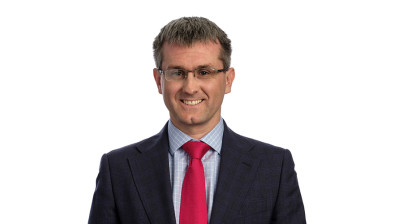Chancellor plans income tax rise, breaking key manifesto pledge

The UK government is facing a fresh internal row after Chancellor Rachel Reeves reportedly informed the fiscal watchdog of plans to raise income tax, breaking a key 2024 manifesto pledge.
The Chancellor is understood to have told the Office for Budget Responsibility (OBR) that the increase will be included in her Autumn Budget on November 26. The move, first reported by The Times, is seen as a response to a looming fiscal black hole of nearly £30 billion.
The proposal has caused immediate friction within the party. Labour’s deputy leader, Lucy Powell, publicly warned against the move, stating the government “should be following through” on its manifesto commitments and that breaking them would damage “trust in politics”.
Ahead of the 2024 election, Labour promised not to raise taxes on “working people”, specifically covering income tax, national insurance (NI), and VAT.
Ms Reeves previously appeared to prime the public for tax rises, stating in a speech that everyone “will all have to contribute” to fix the economy.
The proposal involves a 2p rise in income tax, which is expected to be paired with a 2p cut to national insurance. This “tax switch” is designed to shift the financial burden, raising an estimated £6bn for the public purse.
However, the NI reduction would only benefit earners on under £50,000. The move would hit pensioners and landlords – who pay income tax but not NI – as well as higher earners.
Research from Quilter indicates that those earning £100,000 would pay an extra £998 annually, while those on £125,000 would face a £1,745 increase. Lower and median-wage earners are expected to be protected from an overall tax rise by the NI offset.
The speculation has drawn a sharp response from business leaders, who warned the move could stifle investment and create a “competitive opportunity” for Scotland.
Commenting on ongoing speculation around the forthcoming UK government budget, Scottish Financial Enterprise chief executive Sandy Begbie said: “Driving economic growth and commitments around tax have been at the forefront of the political narrative over the past 18 months, both at Westminster and Holyrood.
“But to be meaningful, that ambition needs to be reflected in decision-making and any tax increases would simply hit workers, take money out of the real economy and discourage investment across the UK. You cannot, and never will, tax your way to growth.
“But if the chancellor opts to increase tax in her budget later this month, this presents a competitive opportunity for Scotland. The Scottish government should resist the temptation to follow suit, and stick to its existing commitment up to and beyond the Holyrood election. By doing so, there is a real opportunity to attract new jobs and investment to Scotland, thereby increasing our tax base and international competitiveness.”







